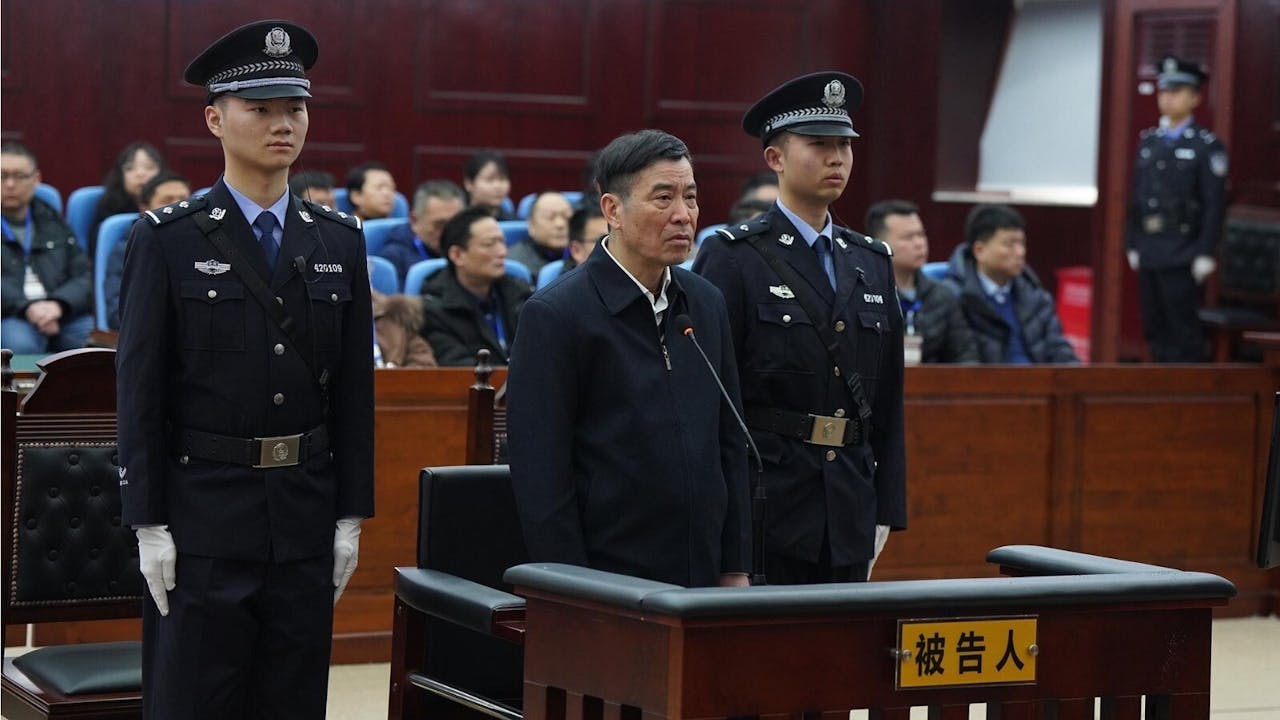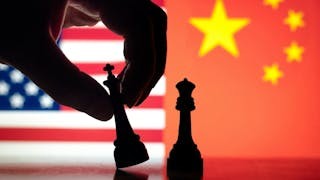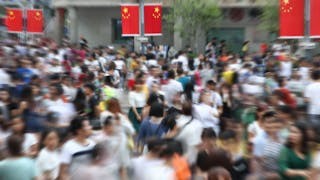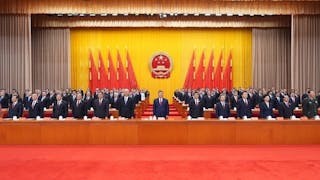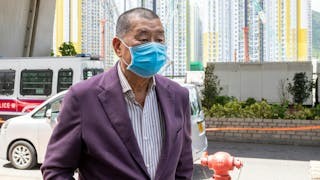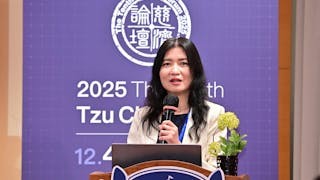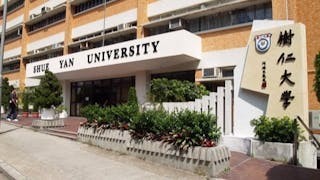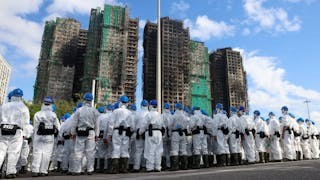2024年3月26日,中國湖北省黃石市中級人民法院對中國足協前主席陳戌源作出重要判決。陳戌源非法收受他人給予的8100多萬元(人民幣,下同)、被控「嚴重破壞足球領域公平競爭秩序和行業生態環境」。法院也表示,由於陳戌源如實供述自己罪行,揭發他人犯罪行為,並退還違法所得,法院的判決已經是「從輕處罰」。
陳戌源在法庭上認罪,並向公眾90度鞠躬10秒,表示希望球迷原諒他。然而,中國不少網民並沒有真正原諒他,並在社交媒體上評論稱陳戌源應被判處「死刑」,這反映了許多網民的強烈憤怒。
擔任足協主席 打擊金元足球
陳戌源1956年出生於上海,1973年在上海港務局擔任碼頭工人,2005年升任上港集團總裁。2013年,上港集團成功收購了上海東亞足球俱樂部。6年之內,他成功地將球隊打造成中超聯賽冠軍。2019年,陳戌源被任命為中國足協換屆籌備組組長。隨後,他當選為中國足協主席,成為第一位非體育系統出身的中國足協主席,同時也是中國足協歷史上第一位專職主席。
陳戌源在擔任足協主席期間,重點打擊「金元足球」,意思是他反對用金錢來招募外援球員,以求在最短時間內提高球隊的技術水平。同時,他支持幫助外籍球員歸化為中國籍的想法,這在當時是有爭議的。最重要的是,陳戌源決定聘請英超愛華頓前中場球員李鐵擔任男足國家隊主教練。
李鐵於2020年1月至2021年12月擔任中國男足國家隊主教練,但早在擔任國家隊主教練之前,他就被指控行賄和收受巨額賄賂。李在法庭上承認,他為了獲得主教練職位而行賄。此外,李鐵也承認自己參與各類假球活動,2017年至2021年在武漢卓爾俱樂部擔任教練期間收受賄賂金額超過7700萬元。
2024年1月,中國國家電視台中央電視台採訪了李鐵,李鐵稱自己為了成為國家隊主教練而行賄42.1萬元。李在電視節目中說:「我是非常後悔的。還是要踏踏實實的,也要走正路,不要急功近利,不要想盡一切辦法去走捷徑。」
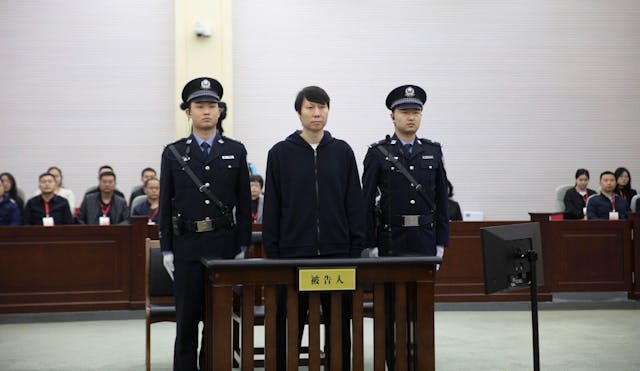
中紀委調查 五高官落馬
2022年11月,中紀委開始對足球腐敗問題進行廣泛調查,不僅導致陳戌源,也導致其他5名直接參與足球領域的高級官員落馬。這5名高級官員包括中國田徑協會前主席于洪臣,他因13年間收受13家足球俱樂部2200萬,被判13年有期徒刑;中國足球協會前常務副秘書長兼國家隊管理部前部長陳永亮,他因7年中收受20多家俱樂部、地方足協及個人1900萬元,因受賄及行賄罪被判處有期徒刑14年;中超聯賽前總經理董錚,因7年間受23個俱樂部2200萬元,以受賄罪被判處有期徒刑8年;武漢全民健身中心前副主任劉磊因受賄52萬元,被判處有期徒刑兩年半;曾任中國足協副主席的王登峰,因6年內受賄960萬元、非法佔有公共財物4600萬元,被判17年有期徒刑。
于洪臣聽到自己被法庭判刑13年時,淚流滿面。他的案情很嚴重,因為有一宗案子涉及他利用職權幫助天津一個球會更名註冊並在中超聯賽護級。更糟的是,于洪臣受賄幫助10間俱樂部安排特定裁判,這些裁判的決定偏幫這些俱樂部。顯然,于洪臣受賄泥足深陷,並安排「黑」裁判作出有利於那些賄賂他的俱樂部的決定──他是足球腐敗和比賽造假過程中的關鍵中間人。
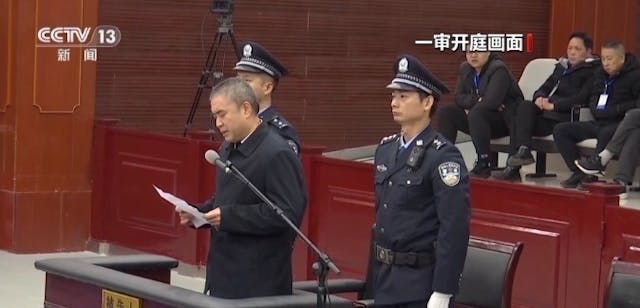
陳永亮的案情也很嚴重,因為根據法庭描述,他憑藉其中國足球「老人」的地位,跑官買官,幫助俱樂部贏得比賽,並安排一些球員入選國家隊球員。法院指出,他為安排其委託人擔任中國足協多個有影響力的委員會職務,向于洪臣行賄90萬元。顯然,利用賄賂圖利委託人,將委託人納入中國足協具影響力的委員會成員,成為陳永亮的一種手段。
董錚被發現在俱樂部的比賽安排、門票安排、球場檢查、減輕後勤供應處罰,以及代表球員的經紀人管理等方面收受賄賂。他的腐敗行為表明,整個足球管理實踐中存在着廣泛的賄賂行為。2018年,董錚被指控接受100萬元存款的銀行卡,但他告訴行賄者,這種付款「不方便」。結果,行賄者給了他100萬元現金。為了避免被發現,董錚讓別人管理這100萬元。
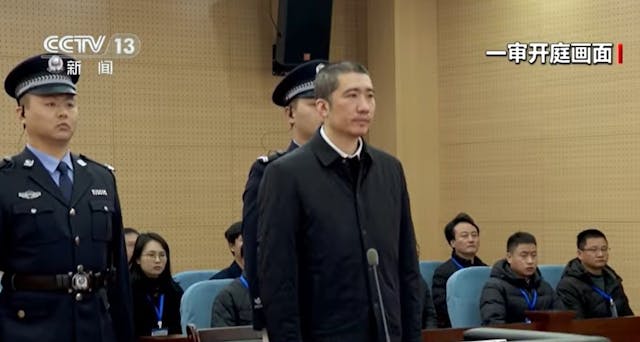
劉磊被判犯了受賄罪,以換取他對足球場維修和更新工作的決定。據悉,2018年至2022年期間,劉磊洩露了招標建設和更新項目的招標信息,令6家企業在中標過程中明顯受到優待。
集團腐敗興起 迅即根深柢固
所有這些足球腐敗案件都說明了一些重要特徵:
首先,從2019年到2022年底的中國足球腐敗或許只是冰山一角,集團腐敗的興起,並迅速在足球領域根深柢固。如果足協前主席陳戌源和前副主席王登峰也參與其中,就像其他足球高管一樣,整個中國足協不僅需要中紀委的更嚴格審查,而且其領導層也需要不斷的、定期的進行反腐敗教育,以防止腐敗再度在中國足球領域抬頭。
其次,選擇陳戌源領導中國足協是錯誤的,也是災難性的,因為他是一名商人,在足球領域曾取得迅速的成功。事實上,在快速發展的時代,中國體育官員和政府高層的部長可能希望在足球發展方面取得快速成果,特別是因為中國國家主席習近平是一名足球迷。然而,讓中國足球快速現代化的願望是一回事,選擇一個合適的人來領導中國足球協會又是另一回事。選擇商人陳戌源領導中國足協可以說是錯誤的,因為足球運動的現代化和發展不僅需要於大量的資金投入;相反,道德考慮無論在過去和現在都是最重要的。陳戌源選擇了李鐵擔任國家隊總教練,是2020年至2021年中國足球發展道德缺失的又一佐證。
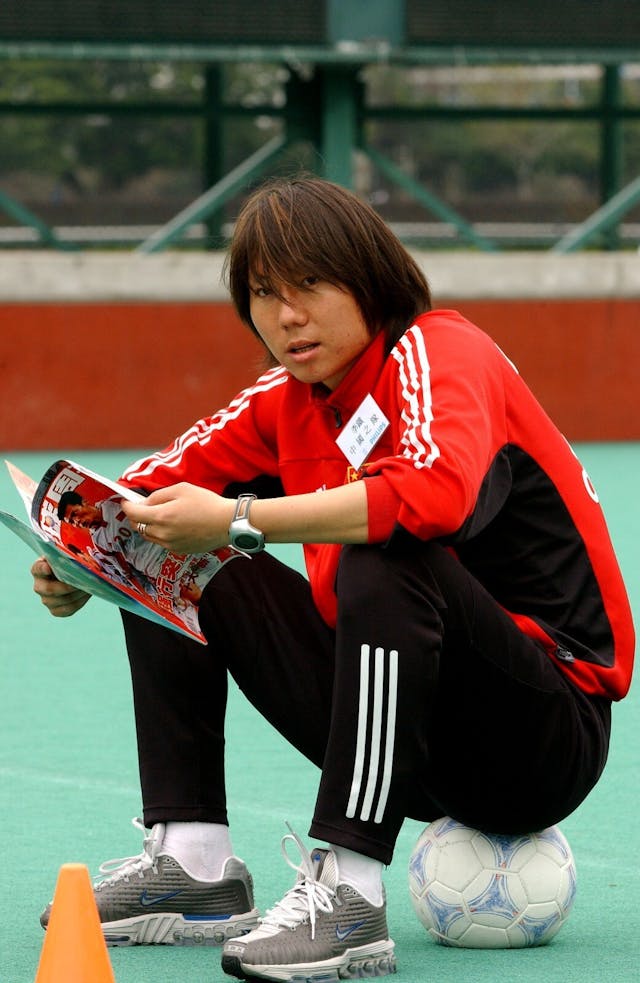
第三,從陳永亮到董錚,從于洪臣到劉磊等貪腐案件,都顯示了中國足協需要進行大規模的清理行動。中國足球界對「黑」裁判的選擇,對職業道德和管理規範的忽視,以及採取人治而不遵循任何法治的任意行為,都是中國足壇必須加以阻止、懲罰和阻嚇的不光彩行為。隨着陳戌源、李鐵、于洪臣、陳永亮、董錚、劉磊、王登峰7人團夥的落網入獄,足球貪腐現象暫時終止,違法者受到嚴懲。事實上,2023年4月,國家體育總局副局長杜兆才因涉嫌貪腐被免去副部級職務。令人不安的是,杜兆才還兼任中國足協黨委書記。顯然,多年來,中國足協內部的集團貪腐現像日益嚴重。我們面臨的挑戰是如何向所有中國足協高層灌輸道德意識,並阻止他們,包括官員、裁判和經理,再次走上腐敗之路。
第四,在中國足球反腐敗過程中必須鼓勵舉報人。3月28日,改革後的中國足協承諾,對揭發假球、賭博、黑裁判等足球腐敗行為的舉報人給予2000元至2萬元的獎勵。這種激勵不限於職業足球,還包括業餘足球,包括中超聯賽、中冠聯賽和青少年聯賽。同時,歡迎65歲以上公民向中國足協申請作為監督代表,與市級紀委委員一起工作兩年,以推動中國足球管理道德的落實和運作。這些充當督導員的義工也將向所有在職業和業餘足球領域工作的人員宣傳監督和廉政的重要性,收集有關足球發展的輿論,為政府當局收集公眾意見。這種監督和督導對於正在進行的反足球腐敗鬥爭是否真正起作用還有待觀察。
第五,利益衝突指引必須由中國足協根據中央紀律檢查委員會的意見和建議制定。從中國足協足球腐敗集團的活動來看,所有足球俱樂部的高層在選拔、任命或選舉中國足協下屬委員會成員時,都需要避免利益和角色的衝突。申報利益衝突並避免參加涉及所在俱樂部委員會會議的討論,對於足球事業的現代化和打擊足球腐敗是必要的。如果沒有強烈的潛在利益衝突和角色衝突意識,沒有廣泛的防止利益衝突的指導方針,足球俱樂部的領導和代表就無法做出公正的決定,維護中國足球發展的整體利益。
綜上所述,隨着陳戌源為首的足球腐敗集團的垮台,中國足球現代化和發展的前景仍可保持謹慎樂觀;然而,這種樂觀情緒是基於這樣的假設:中紀委必須定期派出巡視組來監督足協的工作和運作;足協領導必須像有道德的企業家而不是不道德的商人;必須揭露和嚴厲懲罰足球腐敗行為者,必須鼓勵和激勵舉報人,必須採用和實施利益衝突準則,以及向中國足協領導者、各級教練、運動員、裁判員和經理和全體員工灌輸更強烈的道德意識。否則,今後幾年,反足球腐敗和推進中國足球現代化的道路可能仍將是一條漫長而艱難的道路。
Fighting football corruption in China
On March 26, 2024, an intermediate-level court in Hubei province’s Huangshi city in China delivered an important judgement on Chen Xuyuan, the former president of the Chinese Football Association, sentencing him to life imprisonment for accepting bribes that amounted to 81 million yuan and charging him for “seriously undermining the fair competition and industrial ecology of the football area.” The court added that, due to Chen’s willingness to reveal the facts about his bribery activities, to unveil the illegal acts of others, and to return the illegal proceeds, the court’s verdict was already “lenient.”
Chen admitted his guilt in the court and bowed ninety degrees to the public for ten seconds, saying that he hoped football fans could forgive him. However, a lot of netizens in China did not really forgive him, adding in their comments on the social media that Chen should have been given “death penalty” – a reflection of the profound anger of many netizens.
Chen was born in Shanghai in 1956 and worked as a dock worker in Shanghai’s port authority in 1973. In 2005, he was promoted as a chief executive officer of the Shanggang Conglomerate in 2005, succeeding in buying into the ownership of the Shanghai Dongya (East Asia) Football Club in 2013. Within six years, he succeeded in turning the club into a forceful team that could be elevated to become the Chinese Super League’s champion. In 2019, Chen was appointed as a convenor of the preparatory committee of the Chinese Football Association (CFA). Later, he was elected as the president of the CFA, becoming the first professional Chief Executive Officer (CEO) in the CFA with a non-sports background. Chen’s position could be regarded as the first professional CEO in the history of Chinese football.
Chen advocated the idea of fighting against the “golden dollar football,” meaning that he was keen to combat the injection of tens of billions of dollars into the modernization of Chinese football. At the same time, he supported the idea of helping foreign players to be naturalized as Chinese players with Chinese citizenship – a controversial move at that time. Most importantly, Chen decided to recruit Li Tie, a former mid-fielder of Everton, to be the Chinese national football coach.
Li Tie was the Chinese national football coach from January 2020 to December 2021, but he was accused of giving and taking extensive bribes even long before he became the national coach. Li acknowledged in the court that he had arranged bribes to be paid for the sake of securing the head coach position. Moreover, Li admitted that he had participated in various match-fixing activities, and that he accepted more than 77 million yuan in bribes from 2017 to 2021 when he was working as a coach for the Wuhan Zall club.
The Chinese state broadcaster CCTV in January 2024 had interviewed Li Tie, who said he had paid 421,000 yuan in bribes to become a national coach. Li said in the TV program: “I’m very sorry, I should have kept my head to the ground and followed the right path. There were certain things that at the time were common practices in football.”
The Central Discipline Inspection Committee (CDIC) in November 2022 began an extensive investigation into football corruption, leading to the downfall of not only Chen Xuyuan but also five other top officials directly involved in the football field. These five executives included Yu Hongchen, the former chairman of the China Athletic Association, who was sentenced to 13 years for accepting 22 million from 13 football clubs in 13 years; Chen Yongliang, a deputy secretary of the CFA and minister of national team management, who was sentenced to 14 years of imprisonment for accepting 19 million yuan bribes from 20 clubs in 7 years; Dong Zheng, former general manager of the Chinese Super League, who was sentenced to 8 years of imprisonment for accepting 22 million yuan bribes from 23 clubs in 7 years; Liu Lei, a former director of the Wuhan Sports Center, who was sentenced to two and a half years of imprisonment for accepting 520,000 yuan bribes; and Wang Dengfeng, former vice president of the CFA, who was sentenced to 17 years for accepting 9.6 million bribes and illegally occupying public properties amounting to 46 million yuan in 6 years.
When Yu Hongchen heard that he was sentenced to 13 years in the court, he broke down in tears. His case was serious because one incident involved Yu’s manipulation in helping a Tianjin conglomerate to change its name in registration and to retain its position in the Super League. Even worse, Yu accepted bribes to help ten clubs arrange specific referees whose decisions were then biased in favor of these clubs. Clearly, Yu was deeply enmeshed in taking bribes and arranging “black” referees to make decisions in favor of those clubs which bribed him – a key middleman in the process of football corruption and match-fixing.
The case of Chen Yongliang was also a serious one because, according to the court description, he acted as “elderly” official, who helped alleviate the penalties imposed onto clubs and footballers, and who arranged some players to be selected as national team players. The court pointed to him as a person paying bribes of 900,000 yuan to Yu Hongchen for the sake of arranging his clients to be appointed to various influential committee positions of the CFA. Clearly, the usage of bribery to favor clients became a means by which Chen inserted them into the CFA’s influential committee memberships.
Dong Zheng was found to accept bribes in favor of the clubs’ match-scheduling, ticket arrangements, stadium inspection, the alleviation of penalties against logistical supplies, and the management of agents who represented players. His corruption pointed to extensive bribery pervading the entire football management practices. In 2018, Dong was accused of accepting a bank card with 1-million-yuan deposit, but he told the briber that such payment was “inconvenient.” As a result, the briber gave him cash of 1 million yuan. To avoid being detected, Dong let someone manage the one million yuan.
Liu Lei was found guilty of accepting bribes in exchange of his decisions on the football stadium’s repair and renewal work. It was alleged that from 2018 to 2022, Liu leaked out information on the tendering of construction and renewal projects so that six enterprises were apparently favored in the process of acquiring the tenders.
All these cases of football corruption illustrate some important characteristics.
First, the Chinese football corruption from 2019 to the end of 2022 was perhaps only a tip of the iceberg in the sense that syndicate corruption became emergent and was quickly entrenched in the football arena. If former president Chen and former vice president Wang were involved, as with other higher-tanking football executives, the entire CFA requires not only a much closer scrutiny from the CDIC, but its executive leaders also require anti-corruption education constantly and regularly to prevent corruption from reemerging in Chinese football.
Second, the choice of Chen Xuyuan was a wrong and a disastrous one because he rose up as a businessman with a rapid record of success in the football field. Indeed, in an era of rapid development, the Chinese sports officials and ministers at the top might want to achieve quick results in football development, especially since the Chinese President, Xi Jinping, was a football fan. Nevertheless, the desire to modernize Chinese football quickly was one thing, the selection of a proper person to lead the CFA was another. The choice of businessman Chen Xuyuan was arguably a poor judgement because football modernization and development were not just attributable to large capital investment; rather, ethical considerations were and are of paramount importance. Chen’s selection of Li Tie as the national head coach was another testimony showing the absence of ethics in the Chinese football development from 2020 to 2021.
Third, other cases of corruption, ranging from Chen Yongliang to Dong Zheng, from Yu Hongchen to Liu Lei, demonstrated the need for an extensive clean-up action in the CFA. The choice of “black” referees, the neglect of ethical and proper management practices, and the arbitrary action of utilizing personal rule rather than following any “rule of law” in the Chinese football circle were a testimony to the disgraceful actions that must be stopped, punished and deterred. With the arrest and imprisonment of the “gang” of seven – Chen Yongyuan, Li Tie, Yu Hongchen, Chen Yongliang, Dong Zhen, Liu Lei and Wang Dengfeng – football corruption has been terminated temporarily and its offenders have been punished. In fact, in April 2023, the deputy director of the General Administration of Sport of China (GAS), Du Zhaocai, was dismissed from his vice-ministerial position for alleged corruption. Disturbingly, Du was also the party secretary of the CFA. Clearly, syndicate corruption grew within the CFA for some years. The challenges are to instill the sense of ethics into the psyche of all CFA executives and to deter them, including officials, referees and managers, from stepping onto the corruption pathway again.
Fourth, whistleblowers must be encouraged in the process of fighting football corruption in China. On March 28, the reformed CFA vows to reward 2,000 yuan to 20,000 yuan to those whistleblowers who reveal football corruption activities, including match-fixing, football gambling and black refereeing. This incentive is not restricted to professional football but also amateur one, including the Chinese Super League, the Chinese Championship League and the youth league. Moreover, citizens who are at or over 65 years old are welcome to apply to CFA as representatives of supervision, working together with the Discipline Inspection Committee members at the municipal level for two years for the sake of enforcing the implementation of ethics in Chinese football management and operation. These volunteers who act as supervisors will also educate all those who work in the professional and amateur football arena on the importance of oversight and clean governance, collecting public opinion on football development and gathering public views for the government authorities. It remains to be seen such oversight and supervision will really work in the ongoing combat against football corruption.
Fifth, the conflicts of interest guidelines must be worked out by the CFA together with the inputs and advice from the Central Discipline Inspection Committee. Judging from the activities of the football corruption syndicate in the CFA, all the executives of football clubs need to avoid their conflicts of interests and roles if they are selected or appointed or elected to the committees under CFA. Declaration of conflicts of interests and the avoidance of attending committee meetings that involved the discussions of their own clubs will be necessary for the modernization of football development and the combat against football corruption. Without a strong sense of potential conflicts of interests and roles, and without extensive guidelines to prevent conflicts of interests, the leaders and representatives of football clubs would not be able to make impartial decisions defending the general interest of Chinese football development.
In conclusion, with the downfall of the football corruption syndicate led by Chen Xuyuan, the prospects of Chinese football modernization and development remain cautiously optimistic; nevertheless, such optimism is based on the assumptions that the Central Discipline Inspection Committee must regularly scrutinize the CFA work and operation through its dispatch of inspection teams, that the CFA leaders must act like ethical entrepreneurs rather than unethical businesspeople, that football corruption actors must be disclosed and punished severely, that whistleblowers must be encouraged and incentivized, and that the conflicts of interests guidelines must be adopted and implemented to inculcate a much stronger sense of ethics into the psyche of not only CFA leaders, but also coaches, players, referees and managers at all levels. Otherwise, the combat against football corruption and the drive to modernize Chinese football will likely remain a long and difficult path in the years to come.
原刊於澳門新聞通訊社(MNA)網站,本社獲作者授權轉載。原文網址:https://tinyurl.com/22vfj2w4



